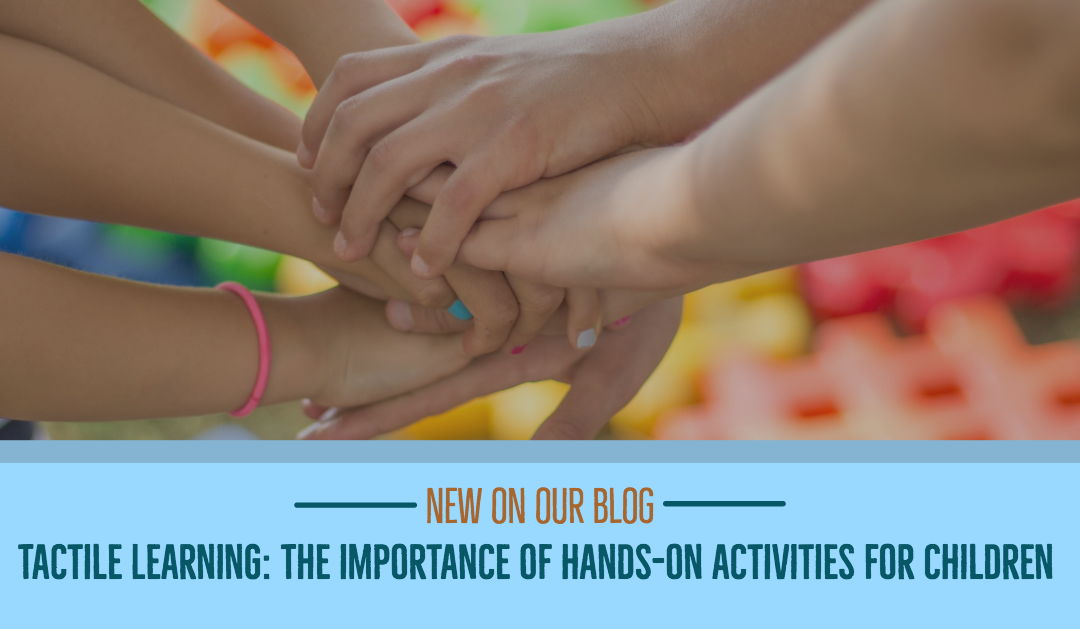
by Sara Hart | May 21, 2020 | Blog
Adults learn best through experience. Think about it – how often do you search YouTube or Google for how-to tutorials? It’s much easier to complete and master a task once you’ve seen how it’s done. At South Bay, we recognize this, and we infuse this thinking into our Early Intervention services. Going through a new experience – especially when it comes to raising a child with a developmental delay – can be stressful and scary. We understand, and our clinicians are here to help you every step of the way, as it’s a collaborative effort between the clinician and the parent. Below, we offer tips on how parents can ensure they’re actively engaging in intervention strategies, allowing their child to have the best possible beginning.
Engage in affectionate and nurturing interactions.
Holding, singing, rocking or talking to infants are interactions that might seem natural to parents. But, these exchanges are more fundamental to a child’s development than one might know. These connections provide your child with the stimulation his or her growing brain needs. Positive interactions send messages to your baby that he or she is valued. As a result, your child will grow up knowing to treat others in …

by Sara Hart | Jun 24, 2019 | Blog
Did you know that the first three years of a child’s life are the most impressionable? From ages zero to three, children begin to develop their own personalities and socialization skills and conquer some of the most important physiological milestones. These skills expand throughout childhood, which is why it’s important to leverage a system of teaching that aids learning through the senses, particularly through the sense of touch. Below, we explain the importance of tactile learning in helping promote strong, positive mental wellness in your child.
Helps children with learning disabilities
Since cognitive learning and physical activity are parallel and essentially reinforce one another, tactile learning methods can help improve a child’s concentration and learning capacity and increase self-confidence. A play-based learning technique allows children who struggle to maintain focus and learn in a traditional setting to succeed. This type of learning allows children to become engaged through intentional play tactics that help build the foundation for future education.
Promotes positive growth
Consistent, positive interactions with adults and other children their age allow a child to develop a positive, more relevant perception of the world around them. With instructors and parents engaging in play, whole parts of the child’s brain …

by Sara Hart | Jan 21, 2019 | Blog
It’s no secret – sleep is an essential factor when it comes to your child’s overall health and development. While a few bad nights can be normal, children with persistent sleeping problems could lead to temperament, learning and social behavior issues. Below, we outline steps you can take to improve your child’s sleeping habits, ensuring they get the critical sleep they need to develop and function properly.
Bedtime bravery
For a lot of children, the looming thought of going to sleep can be anxiety-inducing. That’s why it’s important to help them face it with bravery. Try drowning out odd noises with a sound machine; illuminating the room with a night light; or re-labeling an air freshener bottle as “monster spray.” Stay consistent in helping them face their fear. If they wake up in the middle of the night, bring them back to their own bed – instead of resorting to letting them sleep in yours. In turn, celebrate your child’s good nights by using a rewards system such as a sticker chart.
Sleep environment control
Allow your child to take control of his or her bedtime routine by choosing which stuffed friend or blanket to bring to bed. Find an …

by Sara Hart | Jan 24, 2018 | Blog
One of South Bay’s most unique attributes is that the majority of our services are conducted outside of our offices, such as in community settings. Our Early Childhood clinicians frequently travel to homes, schools, foster homes, residential programs, churches, childcare programs etc. – wherever our consumers feel most comfortable.
We understand that inviting an outside party into your home to work with your child can be scary and intimidating. There’s also a common misconception amongst our consumers that a South Bay clinician is the only party involved in the child’s development. It takes a joint effort of the entire family and our Early Childhood team to ensure growth, stability and well-being during the child’s early years. We explain everything you need to know about home-based services for children below.
The clinician’s role
When serving a child, South Bay’s Early Childhood clinicians work with the entire family – not just the child. The clinician’s role is to identify developmental delays and provide support to families if there are environmental barriers that are contributing adversely and may impact the child’s development. Such barriers may include drugs, alcohol, traumatic birth, etc. Once the developmental delay is determined, clinicians provide consultation among the team …




